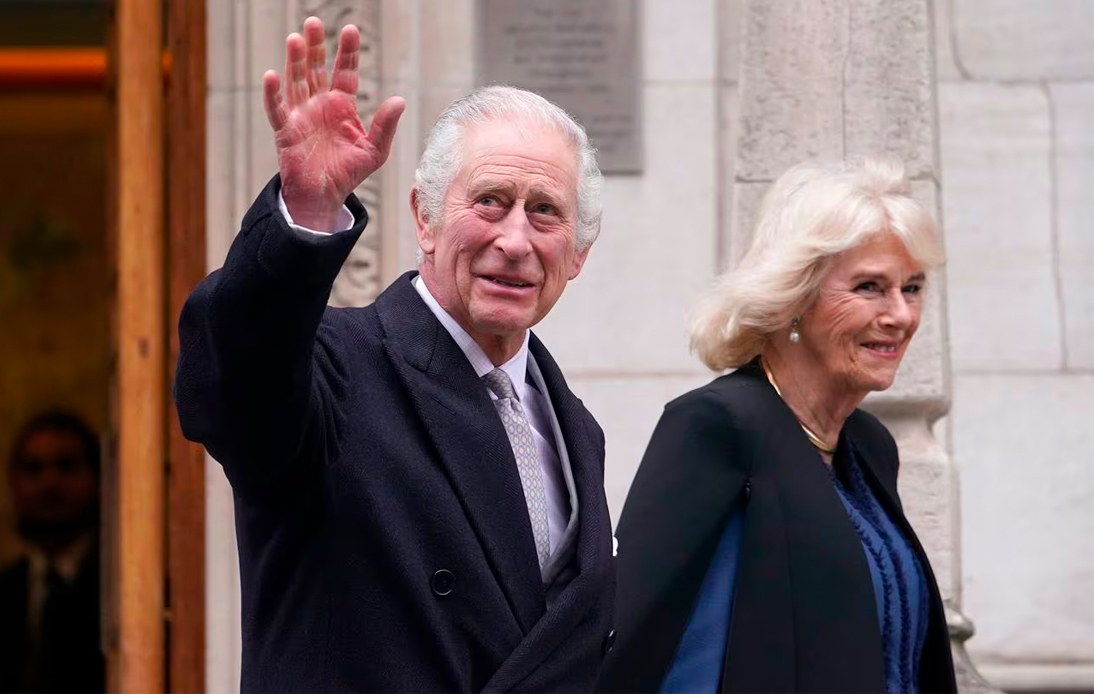
Buckingham Palace announced on Monday that King Charles III has been diagnosed with cancer.
The specific type of cancer has yet to be disclosed, however, it is not prostate cancer. This diagnosis follows his treatment for prostate enlargement.
Starting Monday, King Charles commenced a series of “regular treatments” and will temporarily step back from his public roles, according to the Palace.
At 75, the King maintains a highly optimistic outlook regarding his treatment and is eager to resume his full range of public responsibilities as swiftly as possible, the Palace further stated.
Details on the cancer’s stage or expected outcomes have not been made public.
Charles has personally informed his sons about his health condition, with the Prince of Wales maintaining close communication with his father.
Prince Harry, the Duke of Sussex, currently residing in the United States, has spoken with his father and plans to visit him in the UK shortly.
Following his return to London from Sandringham in Norfolk on Monday, the King began his treatment as an outpatient.
Despite pausing his public appearances, the King will persist in fulfilling his duties as the nation’s head, which includes handling official paperwork and conducting private meetings.
The King’s regular meetings with Prime Minister Rishi Sunak are set to continue face-to-face, unless medical guidance suggests otherwise.
In situations where the head of state is incapacitated, a “counsellors of state” system is in place, allowing specific individuals to perform the monarch’s duties temporarily.
Currently, Queen Camilla, Prince William, the Princess Royal, and Prince Edward are among those who can act as counsellors of state, with Prince Harry and the Duke of York being exceptions due to their non-active royal status.
Prince William had also paused his public duties to support his wife, Catherine, the Princess of Wales, through her recovery from abdominal surgery but is expected to resume his engagements later this week.
The King was last seen at a church service in Sandringham on Sunday, acknowledging the public and walking for a brief period.
He underwent a procedure for his prostate at a private hospital in London over a week ago, initially described by the Palace as treatment for a “benign” condition.
“It was during this intervention that a separate issue of concern was noted and subsequently diagnosed as a form of cancer”, the Palace said on Monday.
The King has chosen to be open about his cancer treatment, reflecting his long-standing role as a patron for various cancer charities during his time as Prince of Wales.
“In this capacity, His Majesty has often spoken publicly in support of cancer patients, their loved ones, and the wonderful health professionals who help care for them”.
The King’s disclosure of his prostate treatment aimed to encourage more men to undergo prostate examinations, which reportedly led to an increased interest in prostate health issues on the NHS website.
The Royal Society of Medicine praised the King for drawing attention to cancer’s indiscriminate nature and encouraged people eligible for cancer screenings to book appointments.
“Please don’t be shy, the more information we have, the better to help, hopefully, to rule out cancer or, if not, to put you on the most suitable treatment pathway”, its president, Dr. Jay Verma, stated.
Charles became king upon Queen Elizabeth II’s passing in September 2022, with his coronation following in May.
The King and Queen have planned visits to Canada in May, as well as to Australia, New Zealand, and Samoa for the Commonwealth Heads of Government Meeting in October.
However, the Palace has not yet confirmed if these tours will proceed, and there is no specified date for when the King will resume his full range of official duties.




















